Supercomputer Applications
UNIT #1 - Iteration, Bifurcation, and Chaos
Introductory Materials
Getting Started: Background Information on UNIX and HTML
The following pages will help you get started with UNIX and HTML. You will
need to present your projects in a web-based format in this class, so if
you are having difficulty with these topics, please see Mr. Hyatt or some
of the other students in the class who know these skills.
Working with PHP
PHP is a new addition to HTML that allows a web designer to create
interactive and dynamic web pages easily. It interfaces nicely with
a database application, MySQL, that is also available on our web
server. To use MySQL, though will need to get a special database
account.
Perl Resources
Perl is a powerful language that is often used in writing scripts that help
handle functions on UNIX systems, and it has also been used for writing
interactive programs on the web. Unlike PHP, Perl programs that run
on the web must be placed in a special directory called cgi-bin
that is under the web-docs directory. Perl is probably still the
most commonly used language for writing CGI-scripts, but because languages
like PHP are easier to use, it may not be the language of choice in years
to come.
Fractals and Graphics Materials
Chaos and Fractal Resources
The following reference materials will be helpful in understanding some
of the chaos related materials used in the first unit.
OpenGL Resources
Program Examples Used or Discussed in Class
- Basic Window Program
Making a simple window using openGL and drawing a math equation.
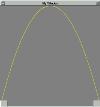
- Using Text
How to use text in a simple window.
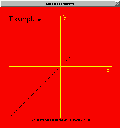
- Subwindows, Scaling, and
Interactive Routines
How to create multiple sub-windows, and use mouse and keyboard routines to
provide interaction such as zooming in and out.
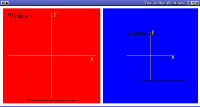
- Bifurcation Diagram
Drawing the Bifurcation Diagram for the Logistic Difference Equation
when 0 < k < 4.

-
Understanding Iteration
An interactive
program that shows the relationship
between an iterated function, the Logistic Difference Equation in the form of
a parabola, and the line y = x which can be used to show how
successive substitutions can be graphically obtained.
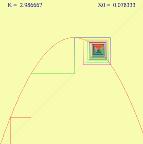
-
Orbits of Points
An interactive
program that shows the relationship
between the Mandelbrot Set and the orbit of points. Right mouse button
tells the imaginary number, left mouse button draws the orbit, the middle
mouse button erases the screen.
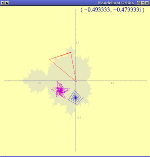
- Polynomial Equivalents
Demonstrating the resulting polynomial after each iteration for the logistic
difference equation.
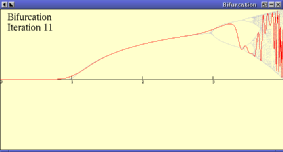
- Plotting in 3D: The Basic Box Program
Making a simple box using openGL with orthographic mode and some rotation
parameters. The program can be used to show why the Identity Matrix is
needed before reapplying transformations.
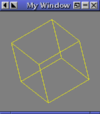
Assignments and Extra Credit
Assignments - UNIT #1
The following pages describe the assignments we have had in UNIT #1. Review
them carefully, and when you have satisfied all the objectives, and have
completed a final web page presenting this unit, fill out
the Self Evaluation form and submit your final project for grading.
Extra Credit and a Few Great Projects from the Past
You are encouraged to go beyond the basic requirements to investigate
advanced features of OpenGL Graphics or topics related to dynamical systems
and chaos that we may not have time to cover in class. Extra credit is
freely given for innovative approaches or advanced studies related to
the units covered in this class, so challenge yourself and amaze your
friends, but expect rewards
from the teacher too! Check out some clever innovations below:







